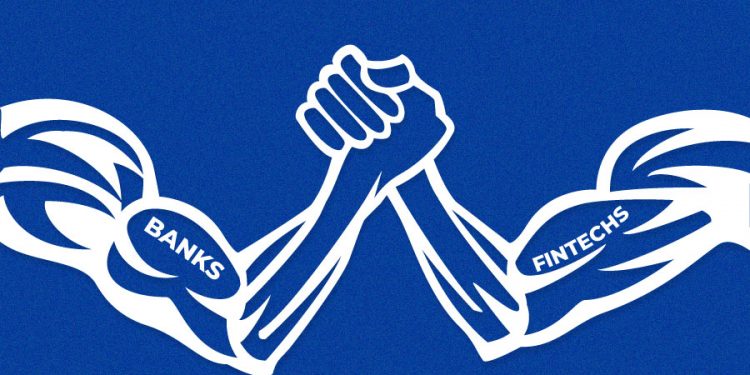It is well known that fintech companies are using technology to provide easier ways for customers and clients to manage their finances. However, while some might say they are doing this better than commercial banks, there is nothing to suggest that the commercial banks are losing out, as commercial banks remain widely used in Nigeria.
Nevertheless, while banks have the customer base and staff numbers to tackle the disruptive potentials of fintech startups, their responses have been quite passive.
Fintech companies like Paystack, PiggyVest, Kuda Bank and others are innovating past traditional institutions by making digital financial services like lending, savings, or investing readily available to people. They have been able to recognize the pain points for users, which have not been addressed by commercial banks.
Other fintech startups have fueled the growth of alternative lenders which offer both higher yields to investors and faster, cheaper, more convenient loans for borrowers compared to traditional banks. Startups like Carbon and Branch offer lower loan rates than commercial banks and this is mostly because fintech companies are not subject to the operational costs involved in running a traditional bank with multiple branches.
In an exclusive interview with Nairametrics, Femi Oshinlaja, the COO of Cassava Fintech, a pan-African Fintech Group that enables digital financial services for Africa’s mobile consumers, explained why digital solutions are fast spreading across the African continent by stating;
With the growth in smartphone penetration and greater pervasiveness of the internet, we see the convergence of the online channels with more consumers opting to use digital channels to send money home as they see the convenience of doing so from the comfort of their homes and not having to queue to make the transaction in addition to the affordability of the online option.
Fintechs have tremendous advantages over banks. They are mostly tailored to meet the needs of the younger demographic, and they have had a lot of media buzz that has for the most part trended positively in their favour. Their main strength revolves around the innovations that are closely associated with their brands.
But, it’s highly unlikely that Fintech startups will replace commercial banks any time soon, for a number of reasons. Femi Oshinlaja also added that he felt the traditional brick and mortar channels of sending money still remain as the dominant or preferred way of remitting money home. This is undergirded by the confidence, trust and limited risk the customers associate with walk-in outlets to send money. Customer behaviour and habits take time to change and educating them on the value of the online channels is key.
Trust: First, consumers still trust banks over startup companies to responsibly hold their money.
Robust service offerings: A significant percentage of consumers — especially among the older generation — are not necessarily excited about using different service providers to manage deposits, borrow, invest, and plan their retirement. Unlike fintech, which only focuses on providing services around specific financial offerings, banks are one-stop shops for all financial needs. It can be quite stressful to get a loan from one platform, then download another app for investment, etc.
In-person relationship: Commercial banks tend to have strong existing relationships with their users because they leverage on the in-person touchpoints at their branches to solidify relationships with their users — even as they build out their digital strategies. This is unlike fintechs that limit their interactions with users to digital channels.
While all these are true, banks need to leverage on their strengths and register their digital presence. Very few commercial banks are interested in improving consumers’ digital experience. You can see that in the quality of their mobile apps and the process it takes to set them up. This is unlike the fintech companies that offer good user experiences in their mobile apps.
Banks need to utilise Software-as-a-Service (SaaS) solutions offered by finTech start-ups so that they can easily integrate and streamline operational capabilities and move toward digital/mobile delivery.
Most commercial banks like GTBank, Sterling Bank, and Wema are tapping into resources to better position themselves in this new digital era by investing in emerging technologies — such as mobility, artificial intelligence, machine learning, and big data analytics — to develop a deeper and broader understanding of what each client really wants from solutions that address the different segments of their financial lives.
The rise of fintech has opened up a world of possibilities. Commercial banks are now driven to do better in terms of providing better services, good customer response to their users.
What to expect
- In the coming years, it is predicted we will see a proliferation in financial technology products, and digital services companies in Africa as smartphone and internet penetration increases.
- According to data from Disrupt Africa, fintech attracted the most funding by tech startups in Africa with 24% in 2020, and funded tech startups grew by 27.7% in 2020.
- With this, it is very likely the competition between fintechs and traditional banks in Nigeria will continue for the $9 billion value pool.
- As this anonymous writer puts it, ‘banks want to be fintech companies, while fintech companies want to be banks’. Therefore, we might see increased collaboration in the near future similar to what we saw in 2017 when Nigerian bank, Wema launched Alat by Wema.







